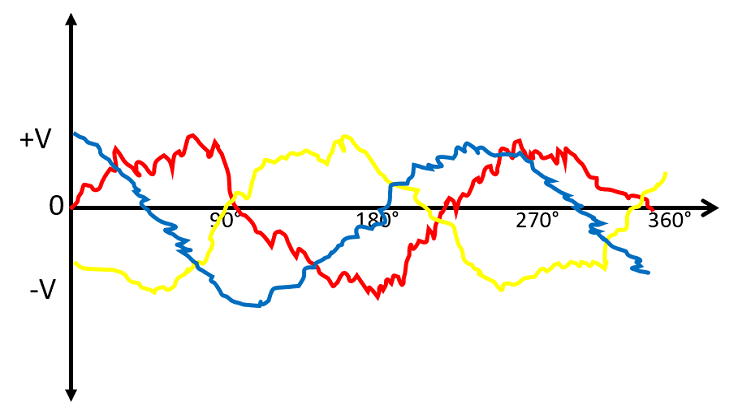



 Tech & IT
Tech & IT
 Business
Business
 Coding & Developer
Coding & Developer
 Finance & Accounting
Finance & Accounting
 Academics
Academics
 Office Applications
Office Applications
 Art & Design
Art & Design
 Marketing
Marketing
 Health & Wellness
Health & Wellness
 Sounds & Music
Sounds & Music
 Lifestyle
Lifestyle
 Photography
Photography
More Learnfly
Business Solution Become an InstructorPhysics explores the fundamental principles governing the behavior of matter, energy, space, and time. It seeks to understand the universe's fundamental forces and phenomena, contributing to technological innovations and expanding our comprehension of the cosmos.

By : Gilad James, PhD
Explore Acoustics, Sound and Audio...
4.7 51055
3:34:57 hrs 31 lectures Beginner Level

By : Gilad James, PhD
A Guide with Activities in Rocket Science...
4.8 59350
2:18:10 hrs 17 lectures Beginner Level

By : Dwijaraja Gore
CBSE/NCERT...
4.3 68312
1:52:40 hrs 17 lectures All Level












Learn more topics in various categories at one place. Explore unlimited courses in other categories and up-skill yourself today.

 Jazeb Akram
Jazeb Akram 4.2 771159 Beginner Level

 John Hedengren
John Hedengren 4.1 569062 All Level

 Ranjan Pandey
Ranjan Pandey 4.1 346728 All Level

 Muhammad Ahsan Pervaiz
Muhammad Ahsan Pervaiz 4.2 101337 All Level

 Pieter Vliegenthart
Pieter Vliegenthart 4.6 100916 All Level

 Jerome P.
Jerome P. 4.8 100881 All Level

 Senol Atac
Senol Atac 4.9 100091 All Level

 Vikas Munjal
Vikas Munjal 4.8 100064 Beginner Level

 Avinash A
Avinash A 4.8 100013 All Level

 ExpertEase Education
ExpertEase Education20 Lectures All Level

 Kiran Beldar
Kiran Beldar21 Lectures All Level

 Bazeer Ahamed Mohamed Nishad
Bazeer Ahamed Mohamed Nishad14 Lectures All Level
.jpg)
 Naman kumar Gandhi
Naman kumar Gandhi 8 Lectures All Level
.jpg)
 Naman kumar Gandhi
Naman kumar Gandhi 24 Lectures All Level

 Nour ElAkhdar
Nour ElAkhdar18 Lectures All Level

 Nour ElAkhdar
Nour ElAkhdar12 Lectures All Level
.png)
 Nour ElAkhdar
Nour ElAkhdar19 Lectures All Level

 Nour ElAkhdar
Nour ElAkhdar14 Lectures All Level

 Dr. Kiran Derle
Dr. Kiran Derle29 Lectures All Level

 Dr. Kiran Derle
Dr. Kiran Derle55 Lectures All Level

 Shivkumar Iyer
Shivkumar Iyer8 Lectures All Level

 Edu Mark India
Edu Mark India30 Lectures All Level

 MUSTAFA VARICI
MUSTAFA VARICI80 Lectures All Level

 MUSTAFA VARICI
MUSTAFA VARICI58 Lectures All Level

 Gilad James, PhD
Gilad James, PhD31 Lectures All Level

 Gilad James, PhD
Gilad James, PhD17 Lectures All Level

 MUSTAFA VARICI
MUSTAFA VARICI76 Lectures All Level

 Krunal Shah
Krunal Shah26 Lectures All Level

 John Peterson
John Peterson6 Lectures All Level

 Taimor Khan
Taimor Khan68 Lectures All Level

 Sumit Saha (Ph.D)
Sumit Saha (Ph.D)105 Lectures All Level

 Dwijaraja Gore
Dwijaraja Gore17 Lectures All Level

 Steve Liguori
Steve Liguori25 Lectures All Level

 Steve Liguori
Steve Liguori25 Lectures All Level

 Salih Zinaty
Salih Zinaty66 Lectures All Level

 Elite Education
Elite Education6 Lectures All Level

 Ziad Baraka
Ziad Baraka33 Lectures All Level
Physics is a branch of science that explores the fundamental principles governing the behavior of matter and energy in the universe. It seeks to understand the properties of space, time, forces, and the relationships between different forms of matter and energy.
Physics provides the foundation for understanding the natural world and the fundamental laws that govern it. It forms the basis for technological innovations, engineering advancements, and contributes to advancements in other scientific fields.
Main branches include classical mechanics (study of motion and forces), electromagnetism (study of electric and magnetic fields), thermodynamics (study of heat and energy transfer), quantum mechanics (study of atomic and subatomic particles), and relativity (study of space and time at high speeds).
Physics plays a key role in technological advancements by providing the principles and theories that engineers apply to develop new technologies. Fields like electronics, optics, telecommunications, and materials science rely heavily on principles derived from physics.
Notable contributions include the development of medical imaging technologies (like MRI and X-rays), telecommunications devices, energy production technologies (nuclear power), and space exploration. Physics has also led to a deeper understanding of the universe's origins and structure.





